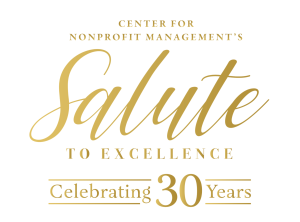CNM Community Impact Award

Award Summary:
The CNM Community Impact Award recognizes an individual organization or a collective group of organizations working in the field of health and human services to impact multiple dimensions of a system including policy, advocacy, program improvement, practices, power dynamics, and relationships. The work requires the engagement of many stakeholders such as nonprofits, government, community members, and those most impacted by the system. Organizations should advocate in the interest of entire populations, by working on long-term, structural changes and work to eliminate barriers, expand access, or improve care for whole populations of people who lack access to resources.
Finalists Awards:
An award of $5,000 will go to the winning organization (or cross-sector initiative) showing demonstrable progress on systems change. An award of $2,000 will go to one finalist organization (or cross-sector initiative). Funds will be awarded to a named backbone organization(s). The backbone will be responsible for distributing funds to its collective partners.
Requirements for the Community Impact Award:
- Applicants must be an organization that has been a 501(c)(3) for at least three years and is a member of CNM. If you are part of a collective initiative, the backbone organization(s) should be the primary applicant and meet the criteria.
- Applicant’s systems change projects must have been active for 12 months or more with documented evidence of progress.
- If applicable, please note a comprehensive list of collaborating partners.
- Local chapters of national organizations may apply, provided they are locally managed and have financial information available locally.
High quality applications will include:
- Visual map showing the relationship between multiple parts of the system
- Logic model that demonstrates how various inputs will bring about desired change
- Evidence that stakeholders within the system have been convened to surface systemic issues and co-design solutions
- Strategic plan to define priorities and action steps
- Demonstrated work across multiple levels of systems change as described in Figure 1. /Table 1. (Final page of PDF (Portable Document Format).)
Previous Winners and Finalists:
- Previous winners of this award are not eligible to reapply for one year. (For example, if the initiative was a winner in 2022, the initiative is eligible to re-apply in 2024.)
- Previous finalist initiatives of this award may reapply.
Questions:
Please Provide specific examples that will help our panelists get to know your organization or initiative best.
CNM believes in creating an equitable, connected community. We aspire to be a brave, inclusive, collaborative space for nonprofits, their partners, and the communities they serve. If applicable, we encourage responses that reflect how diversity, equity and inclusion may have informed your approach to systemic work for community impact.
Thank you for taking the time to share this nomination – we look forward to learning about your exceptional work!
- What community outcomes are you trying to solve? (Limit response to 250 words.)
- What system does your organization desire to impact? (Limit response to 250 words.)
- What progress and outcomes have you accomplished? (Limit response to 250 words.)
- How have the challenges of the pandemic impacted your initiatives’ ability to reach goals? (Limit response to 250 words.)
- Describe how your agency’s initiative(s) have broken down barriers and improved access to care for a population. Please be specific and detailed in your response. (Please limit your response to 250 words.) *
- Describe how your agency’s specific, effective systems change advocacy has been employed and detail how your agency engages its core constituency (target population) in its advocacy efforts. (Please limit your response to 200 words.) *
- List any coalition partners with whom your agency has worked to advocate for policy, institutional, or program changes to improve access to care for the vulnerable or underserved. Please briefly describe their role in the coalition (Please limit your response to 100 words.) *
For Reference: System Levels and Conditions
Borrowing from FSG’s Six Conditions of systems change, the award winner will have demonstrated work across multiple levels as described in Figure 1. below:
Table 1. Conditions Defined
